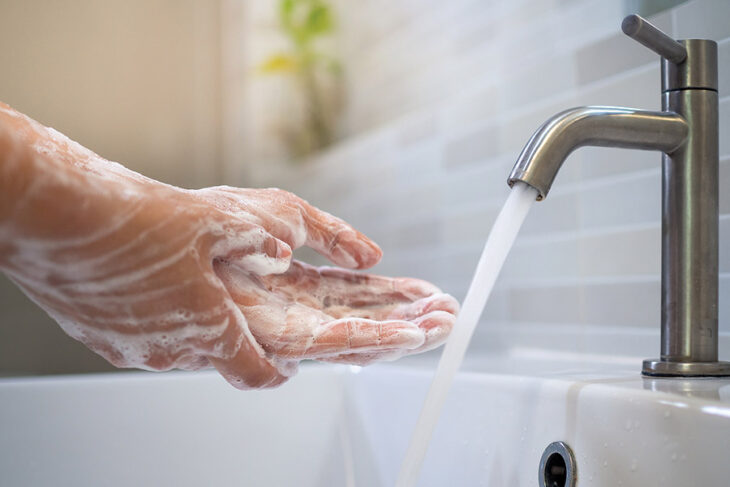By Dr. Sidra Khalid
The Covid-19 pandemic has re-enforced the importance of public health measures. One of the most valuable measures — and easiest to do — is handwashing.
Handwashing reduces the risk of many illnesses, including respiratory and diarrheal diseases. It prevents the spread of germs to ourselves and the people around us.
THE STEPS FOR WASHING HANDS, ACCORDING TO THE CENTERS FOR DISEASE CONTROL, INCLUDE:
- Wetting your hands with water
- Lathering with soap
- Scrubbing for 20 seconds (about the amount of time it takes to hum the “Happy Birthday” song twice.)
- Rinsing your hands under clean, running water
- Drying off with a towel or letting hands air dry
Using hand sanitizers is another effective means of hand hygiene. In cases where there is visible dirt or grease, it is better to wash hands with soap and water than to use hand sanitizers.
More frequent handwashing can have a downside, as skin can become dry and prone to infection. To prevent this problem, moisturizing after handwashing is necessary.
Handwashing is a proven way to prevent the spread of illnesses in our society. With the ongoing Covid-19 pandemic and other diseases, it is important for us to incorporate handwashing into our daily lives.
WHEN SHOULD YOU WASH?
- According to the Centers for Disease Control, you should wash your hands:
- After using the bathroom
- Before, during and after food preparation
- Before eating food
- Before or after caring for someone at home who is sick, particularly with vomiting or diarrhea
- After changing diapers or cleaning up a child who has used the toilet
- After blowing your nose, coughing or sneezing
- After touching an animal, animal feed or animal waste
- After handling pet food or pet treats
- After touching garbage
HAND SANITIZER DOS AND DON’TS
- Hand sanitizers are a valuable tool in combating germs. Here’s how to get their maximum benefit, per the CDC:
- DO make sure your sanitizer contains at least 60 percent alcohol.
- DO make sure to supervise young children while using sanitizer to ensure they do not use it improperly.
- DO rub your hands together after applying until they feel dry (this should take about 20 seconds).
- DON’T rinse or wipe off the sanitizer before it is dry, or it won’t work as well.
- DON’T use sanitizer if your hands are visibly dirty or greasy — for instance, after gardening, fishing or camping. If you can, wash your hands with soap and water instead.
Dr. Sidra Khalid is a physician with Memorial Physician Clinics specializing in hematology, oncology and internal medicine. Reach her at (228) 575-1234.


